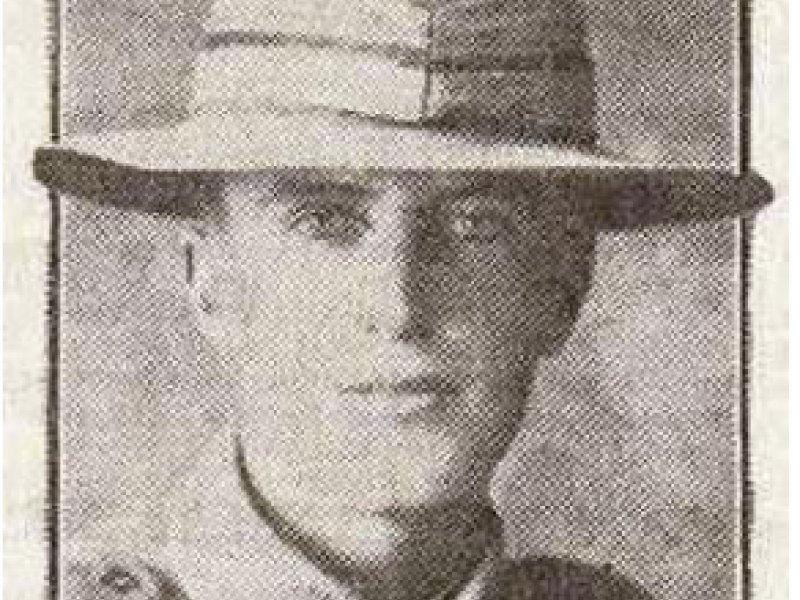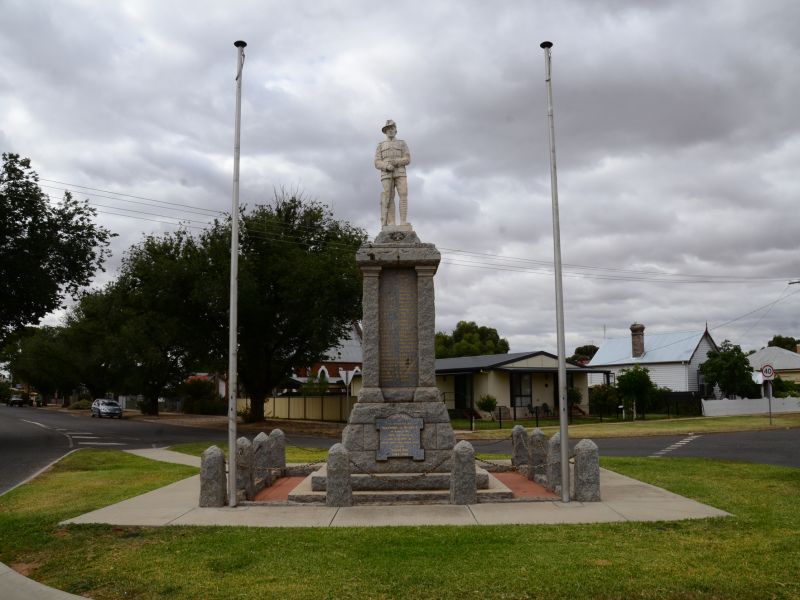Sapper Archie Gordon Shepherd, 3rd Division Signals Company
Archie Shepherd was born in 1893 to Charles and Janet Shepherd of Inglewood, Victoria. He attended the local state school in Inglewood, and went on to work as a telegraphist for the postal department.
Shepherd enlisted in the Australian Imperial Force within weeks of the outbreak of war in 1914. He was posted to the 5th Battalion, and left Australia for active service overseas within two months. The 5th Battalion arrived in Egypt on 2 December 1914, and spent several months training before leaving for Gallipoli.
The 5th Battalion landed on the Gallipoli peninsula as part of the second wave on 25 April 1915. At some point – either on the day of the landing, or in the confusion that followed – Archie Shephard was shot in the chest.
He was evacuated to hospital in Egypt, where he spent some months recovering from his wound. The bullet had lodged in his chest cavity and could not be removed. In September 1915, he was sent home to Australia and discharged from the armed forces.
Shepherd eventually made a good enough recovery to re-enlist for service the following year. In November 1916, he once again left Australia for active service overseas. This time the pressing need for communications expertise on the Western Front put Archie Shepherd’s telegraphy skills in a more valuable light, and he was posted to a signals company.
Sapper Shepherd of the 3rd Division Signals Company was first sent to England and from there to France, where he remained for the following 11 months. His service was unremarkable, except for one charge of delaying an important telegram in April 1917. Otherwise he remained with his company without leave, praise, or censure throughout 1917.
In October 1917, Sapper Shepherd fell ill and was taken to hospital in St Omer. The bullet in his chest cavity was causing problems; at one point he had the symptoms of an intestinal obstruction but later he showed signs of a diaphragmatic hernia.
On 3 November 1917, unable to breathe, Sapper Archie Shepherd died of wounds sustained on Gallipoli more than two and a half years earlier.
He was 24 years old.
Meleah Hampton, Historian, Military History Section
- Australian War Memorial https://www.awm.gov.au/collection/AWM2020.1.1.44

 Australian War Memorial
Australian War Memorial